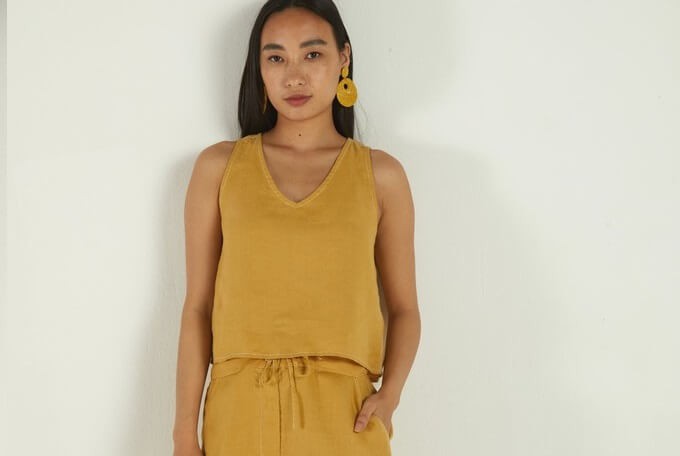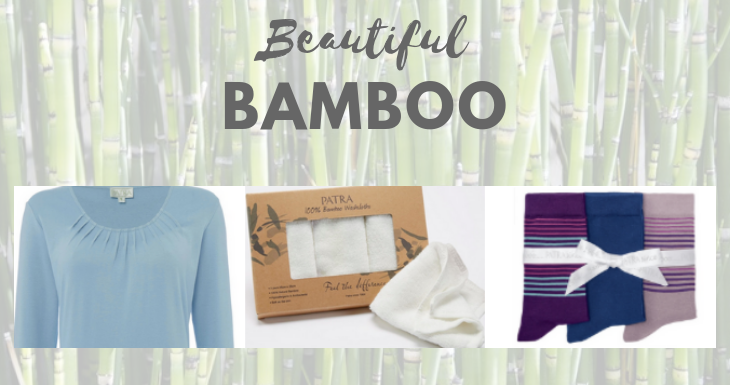Free Tips To Picking Bamboo Clothes
Wiki Article
Why Is It That Hemp Is Stronger, More Durable And Bi-Degradable Than Cotton?
Hemp's inherent properties, as well as the method of growing it, make it more biodegradable, durable and sustainable than cotton. Here's why- Biodegradability-
Natural Fibers - Hemp is a natural fiber from plants, is biodegradable. When discarded hemp clothes and textiles disintegrate naturally, and then return to the soil without generating the long-lasting waste. This contrasts with synthetic fibers, like polyester which require many years to decompose.
Hemp textiles do not typically contain chemical treatments or additives that can inhibit biodegradability. Some cotton textiles, on the other hand, may have been treated using synthetic chemicals such as dyes and finishes that can hinder biodegradation.
Durability-
Hemp is well-known for its strength and durability. Fabrics and clothes made from hemp tend to be less likely get damaged, and last longer than some cotton products. This means that hemp clothing can last longer before showing indications of wear and tear.
Hemp fabrics are less prone to pilling, which results in the formation of tiny, fuzzy balls at the fabric surface. This characteristic enhances their overall quality and longevity.
Regenerative Agriculture-
Health of the soil Hemp farming has regenerative qualities when done in a sustainable manner. The roots deep in hemp can prevent soil compaction and erosion and may increase soil health via the aeration process and increased microbial activity. This regenerative aspect could leave the soil in a better state for future crops.
Low environmental impact- Sustainable hemp cultivation methods require the use of only a few pesticides. The cultivation of cotton is a common method that could result in soil degradation and water pollution as well as other environmental issues due to the use of synthetic chemicals.
Water Efficiency-
Hemp needs less water for development than cotton. Due to its drought-resistant properties, hemp can grow with little irrigation or rain. It is therefore more water-efficient especially in areas where water resources are limited.
Hemp is a good crop to include in rotational systems. This can help improve the soil's health and reduce the risk of developing diseases and soil loss. In the cotton industry the practice of rotation is less widespread.
Hemp is versatile and can be utilized in many different ways, like for textiles, clothing or construction materials. The versatility of hemp means that it can be used to help support many industries that employ eco-friendly, sustainable practices.
Although hemp has these benefits however, it is important to remember that both cotton and hemp can be produced sustainably or in a non-sustainable manner, based on farming practices and methods of processing. The environmental benefits of hemp could be enhanced by selecting products that are made responsibly and in accordance with environmentally friendly methods. Organic cotton products are a good way to reduce the impact on the environment of conventional cotton. Check out the top extra resources for site examples including 100 hemp t shirt, hemp hoodie, hemp jeans, hemp denim, mens hemp trousers, hoodlamb jacket, nomad hemp clothing, hemp shorts patagonia, patagonia hemp work pants, hemp t shirt mens and more.

What Gives Hemp Fibers Their Moisture-Wicking, Breathable And Thermoregulatory Properties?
Hemp fibers possess breathable, thermoregulatory, and moisture-wicking characteristics due to their distinct chemical and structural properties. These characteristics are a result of the following factors. Microscopical structure- Hemp is distinguished by being a porous, hollow fiber that lets air flow within it. Hemp fabrics are extremely breathable because of their porosity. When they are woven into fabric the structure allows air through. This promotes circulation and stops the build-up of heat and moisture on the skin.
Hemp fibers can be used to absorb water as well as wick away moisture. The fibers in hemp clothing absorb moisture, sweat, and help to prevent feeling like your skin is wet. Additionally hemp fibers are very effective in wicking away moisture from your body and spreading it over a wider area of the fabric, so that it evaporates more quickly. The properties of hemp that wick moisture away keep you dry and comfortable while doing physical activity or in hot weather.
Hemp fibers regulate the temperature naturally. They can trap warmth near to the skin when it is cold. In hot weather they help to cool you down by allowing excess moisture and heat to go away. The thermoregulating properties inherent to hemp makes hemp clothing suitable for a variety of temperatures.
Hemp fibers have antimicrobial properties and they can impede the growth of bacteria that produce smells. This is a factor in the freshness of hemp clothes even when it is worn during physical activity.
Hemp fibers are durable and long lasting Therefore, hemp clothing will not be able to breathe. This makes it more durable and extends the lifespan of hemp clothing. This decreases the requirement to replace them as well as the environmental impact.
UV Protection Hemp fibers are a natural UV protector, protecting the skin from harmful UV Rays. This UV-blocking ability adds to hemp clothing's versatility and makes it suitable for activities outdoors.
Important to note is the fact that these qualities are present in hemp fibers. They do not depend on chemical treatments or additives. Hemp clothing is comfortable, durable and sustainable due to its inherent properties. It's a fantastic choice for activewear clothing as well as outdoor clothes and clothing for warm weather. These attributes are preserved when hemp fibers are transformed into textiles. They are a highly sought-after material for eco-friendly clothing. View the best hemp clothing for more advice including hemp and cotton fabric, hemp and cotton fabric, hemp shirts wholesale, hemp clothing wholesale, hemp mens jeans, hemp shirts wholesale, hemp yoga pants, hemp yoga clothes, patagonia double knee pants, hemp jeans mens and more.

Bamboo Clothing Is Environmentally Friendly And Incredibly Comfortable.
Bamboo clothing has many benefits to both the wearer and their environment.
Softness- Bamboo is known for its incredibly soft. It has a soft, silky texture that is comfortable to wear. Bamboo clothing has a luxuriously soft texture, making it popular as intimate apparel or activewear. It is also popular as loungewear.
Bamboo fibers breathe easily, and they absorb moisture. These micro-gaps let air circulate and keep you cool. Moisture wicking helps to draw sweat off the skin.
Bamboo clothing exhibits excellent thermoregulation properties. It can help keep you warm during cooler temperatures by capturing heat close to the body. In hot temperatures, it will help you stay cooler by allowing moisture and heat to escape. Bamboo clothing can adapt to temperature fluctuations can make bamboo clothing suitable for wearing all year.
Hypoallergenic Bamboo is hypoallergenic due to nature, and it is gentle on sensitive skin. It is less likely to trigger allergies or irritation, which makes it a comfortable choice for people who have skin sensitivities, allergies or.
Odor Resistance- Bamboo fibers have natural antimicrobial properties that help to stop the growth of odor-causing bacteria. This is a factor that helps bamboo clothing remaining fresh, even when worn in the midst of physical exercise.
Environment-
Sustainability- Bamboo is a highly durable and sustainable resource. Bamboo is one the fastest-growing plants in the world. It requires a minimum amount of water to grow and requires no pesticides. Bamboo is harvested and the plant will regenerate from its roots.
Bamboo is naturally water-efficient. It can be grown without irrigation, and is often grown with rainwater only. This reduces the environmental impact of water usage in agriculture.
Biodegradability. Bamboo clothes will naturally decay in time when disposed. This feature reduces the accumulation of textile waste that is non-biodegradable landfills.
Carbon Sequestration- Bamboos capture carbon dioxide (CO2) from the atmosphere during their rapid growth. Bamboo cultivation is a carbon sink that could help in mitigating climate change through reducing greenhouse gases.
Chemical Reduction. Bamboo fabric production generally requires lesser chemical treatment and processing than other types of textiles. This means that the textile industry has lower environmental impact.
Closed-Loop Production- Some bamboo fabric production processes utilize closed loop systems that recycle and reuse water and chemicals, minimizing pollution and waste.
It is important to note that the effect of bamboo clothing on the environment may differ depending on the type of manufacturing process employed and if bamboo was sourced responsibly and sustainable from bamboo forests. If you're looking to reap the greatest environmental benefits from bamboo clothes, make sure you choose eco-friendly and ethical production practices. Have a look at the recommended this post for bamboo clothing for site tips including bamboo sun shirt, sustainable bamboo clothing, bamboo jeans brand, bamboo tee shirts wholesale, bamboo long sleeve shirt, bamboo under wear, bamboo cotton pajamas, bamboo pants ladies, bamboo ave shorts, bamboo terry fabric and more.
